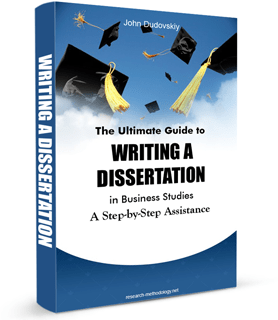Applied Research
Applied research “aims at finding a solution for an immediate problem facing a society, or an industrial/business organisation, whereas fundamental research is mainly concerned with generalisations and with the formulation of a theory”[1]. Applied research is considered to be non-systematic inquiry and it is usually launched by a company, agency or an individual in order to address a specific problem.[2]
Applied research can be divided into the following three categories:
1. Evaluation research. This type of research focuses on analysing existing information about the phenomenon in order to generate objective research outcomes. A study into the ways of reducing supply-chain costs can be mentioned as an example for an evaluation research.
2. Research and Development. It is a type of applied research that focuses on the development of new products and services to satisfy needs and wants of target customer segment. This type of applied research is the least relevant to a business dissertation.
3. Action research. This type of study aims to tackle specific business problems. For example, a research into the ways of restoring Starbucks brand image in UK after the tax scandal can be classified as an action research.
Differences between Applied Research and Fundamental (Basic) Research
The difference between applied and fundamental or basic research is straightforward – findings of applied research can be applied to resolve problems, whereas fundamental studies are used simply to explore certain issues and elements. Applied research can be a follow-up to the findings of a fundamental research.
Moreover, differences between applied and basic research can be summarized into three points:
1. Differences in purpose. Purpose of applied studies is closely associated with the solution of specific problems, while the purpose of fundamental studies relate to creation of new knowledge or expansion of the current knowledge without any concerns to applicability.
2. Differences in context. In applied studies, research objectives are set by clients or sponsors as a solution to specific problems they are facing. Fundamental studies, on the other hand, are usually self-initiated in order to expand the levels of knowledge in certain areas.
3. Differences in methods. Research validity is an important point to be addressed in all types of studies. Nevertheless, applied studies are usually more concerned with external validity, whereas internal validity can be specified as the main point of concern for fundamental researchers.
Examples of Applied Research
The following are examples for applied research. You can notice that each of these studies aim to resolve a specific and an immediate problem.
- A study into marketing strategies to appeal to the aspirations of millenials in China
- An investigation into the ways of improving employee motivation in Marriot Hotel, Hyde Park
- Development of strategies to introduce change in Starbucks global supply-chain management with the view on cost reduction
- A study into the ways of fostering creative deviance amongst employees without compromising respect for authority.
Advantages and Disadvantages of Applied Research
The advantages and disadvantages of applied and fundamental research mirror and contrast each other. On the positive side, applied research can be helpful in solving specific problems in business and other settings.
On the negative side, findings of applied research cannot be usually generalized. In other words, applicability of the new knowledge generated as a result of this type of research is limited to the research problem. Moreover, applied studies usually have tight deadlines which are not flexible.
You need to specify the type of your research in the earlier part of the research methodology chapter in about one short paragraph. Also, in this paragraph you will have to justify your choice of research type.
My e-book, The Ultimate Guide to Writing a Dissertation in Business Studies: a step by step assistance contains discussions of research types and application of research methods in practice. The e-book also explains all stages of the research process starting from the selection of the research area to writing personal reflection. Important elements of dissertations such as research philosophy, research approach, research design, methods of data collection and data analysis, sampling and others are explained in this e-book in simple words.
John Dudovskiy
[1] Kothari, C.R. (2008) “Research Methodology: Methods and Techniques” New Age International
[2] Bajpai, N. (2011) “Business Research Methods” Pearson Education India

